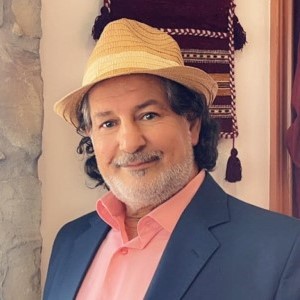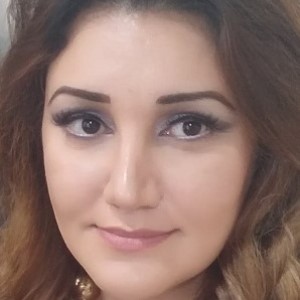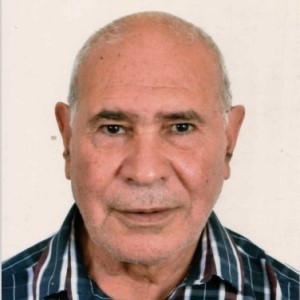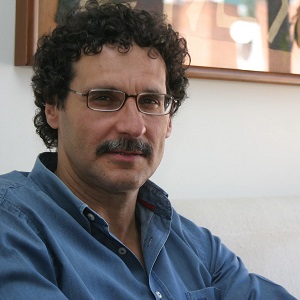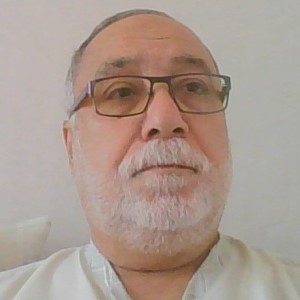ترجمات أدبية
Ali Al-Kasimi: The Clock
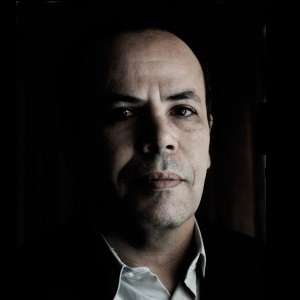
الساعة.. قصة للدكتور. علي القاسمي
ترجمة: د. حسن دلير
by Ali Al-Kasimi
Translated by Hassane Darir (Professor of Translation and Terminology, Cadi Ayyad University, Marrakech) and revised by W Richard Oakes Jr. (PhD-University of Edinburgh, Independent Scholar)
***
Strangeness embodied in a man.
I met him after I joined the Faculty of Arts. His eyes shone with an intelligence that his mouth did not reveal, for he was taciturn, very silent.
It did not take long for my ears to catch what his colleagues were whispering about him. They used to say that he was eccentric, strange-minded, unusual in taste, behavior and hobbies. It was difficult for his students to understand him easily. His words are symbols, and his utterances are far-reaching riddles. His mind gathers contradictions and his personality is made up of opposites. He teaches English literature, but is an expert in the ancient Arabic heritage. He was like a bird of a distinct color, flying away from the flock high in the sky.
A new student arrived in the classroom ten minutes late. As he did not then know the professor, nor the students, he knocked on the door and asked the professor:
- “Is this the class of Professor Sidi Mohamed?”
- “No, his class started at 8: 00.” This is how the professor answered naturally.
The new student walked away disappointed, and did not realize the meaning of the laughter of the students who followed him. Later he realized that Professor Sidi Mohamed had taught him his first lesson in an unforgettable way, to the effect that: Respect the appointments, stick to the time. Time is gold.
For Professor Sidi Mohamed, time is something sacred and of high value, almost equal to the value of the lesson or to the rank of the professor himself, as if he believed in the saying: "If it were not for time, man would not have become a human being." Consequently, I was not surprised that he carried three watches simultaneously: Two wrist watches: One on each wrist, and a third pocket watch in the pocket of his shirt close to his heart. Sometimes, he carried a few more watches in his other suit pockets. Perhaps it is this behavior that caused his colleagues to stigmatize him on charges of strangeness.
My relationship with Professor Sidi Muhammad got closer after he ascertained that I respect time and that I understand or try to understand some of the ideas that he revealed to me. Thus, he felt increasingly confident in me, so one day he invited me to his house to have tea with him.
I was astonished and amazed when I entered his house. I tried very hard to hide my feelings, for I was afraid to offend my host if I showed surprise. The yard of the house was filled with a strange crowd of old and new clocks, emitting a mixture of sounds, chimes, and melodies. In the center of the house was a water clock that took the place of the fountain. I recognized it from its water-filled cylinder, the hollow floating machine in which a little ball fell into a bowl every hour, making a buzzing announcing that an hour had passed.
At the top of the opposite wall was a large sundial. This clock is made of a wooden stick stuck in the wall, on which the sun's rays fall, and its shadow moves on a panel of numerals inscribed on the wall to determine the time. On either side of that sundial, hung two large astrolabes, one of copper and the other of silver. I don't know how he got them, because I had never seen an astrolabe in the markets that I had shopped for years in this city. While I was thinking that the sundial and the astrolabe only help to tell the time on a sunny day, I glimpsed on a table in the corner of the courtyard an hourglass composed of two large glass bottles connected to each other through a small neck. The upper bottle was filled with sand while lines and numerals were inscribed on the lower bottle. The sand particles began to seep from the upper bottle to the lower one through the neck, to indicate time as the sand accumulated over time.
The rest of the walls were overcrowded with clocks of various types, sizes and shapes: A wall clock with a long pendulum dangling from it and dancing right and left, and a wall clock whose pendulum is in the form of a bird chirping minutes and shouting each hour, and a wall clock opening right from its middle between every hour and then, allowing the statue of a small man to emerge from it to announce the time in a hoarse voice and then it closes.
I felt that I should say something, to hide the signs of astonishment on my face, so I drew a smile on my lips and said:
- “The hobby of collecting watches is great.”
My statement seemed silly and meaningless at that point, so I added:
- “Your home is very much like a specialized museum.”
Without looking at me, he said:
- “The clock is the most wonderful thing that the human mind has invented. This is thanks to our ancient Arab ancestors.”
Here I tried to say something clever about my knowledge of the history of watches, but the only statement that came to my mind was the following:
- “Do you mean by that the ticking clock that the Abbasid Caliph Harun al-Rashid gave to Charlemagne, king of the Franks, which frightened his entourage?”
He said:
- “By the clock, I do not mean a machine or a tool, but rather the unit of time. The ancient Arabs of the Sumerians, Babylonians and Pharaohs are the ones who managed to divide time into years, seasons, months, weeks, days and hours, by observing the planets and stars, and dividing the time that they take in each of their cycles.”
We entered the sitting room and my eyes fell upon a large wooden plaque that was hung on the wall, bearing twelve pocket watches. The rest of the walls were covered with different clocks whereas the tables in the room were full of various desk clocks. Their beats mingled in a strange symphony of sounds, melodies, and rhythms.
His old servant was not there that day, so he himself went into the kitchen to make two cups of coffee. I took the opportunity to look at the plaque of pocket watches hanging on the wall. It had twelve pocket watches, as I said. Under every watch was written the name of one of the world's cities from east to west, so that the difference is one hour from one city to another: Tokyo, Kuala Lumpur, Bangkok, Islamabad, Delhi, Mecca, Tripoli, Tunis, Algiers, Casablanca, etc.
The professor came back carrying a tray with a coffee pot and two big cups in it. When he put it on the table, I noticed that one of the cups bore a drawing of a clock with three colored hands.
I did not want to ask him about the secret of the twelve clocks and their usefulness to him for he specializes in English literature, not geography. I tried to divert the conversation from the subject of clocks, about which I do not know much, to another subject, such as coffee, which I consider myself an expert in drinking, but I only managed to make another silly statement:
- “This is a nice watch-shaped cup.”
He immediately retorted:
- “The Arabic word for 'cup' (Finjan) was pronounced 'binkan'. The word "binkan" was used in the Arabic tradition to denote a type of clock with a mechanical mechanism. The cup from which you sip the coffee now does both. Once you've finished drinking your coffee, you can read how long you've been drinking.”
I did not know what to say to him. I found myself turning away from him, and behold, my eyes fell on a table near us. There were seven watches that were the same size and shape, or so it seemed to me. I found myself asking him with a certain impatience:
- “What is the benefit of owning seven watches of the same type, like those arranged on the table?”
He answered calmly, almost monotonously, as if to teach a lesson he had repeated over and over:
- “They are not one type. The first is powered by a screw, the second by battery, the third by hand movement, the fourth by wrist pulse, the sixth by solar energy, and the seventh by air movement. Furthermore, each one of them alerts me to a different thing, with a different tone.”
I told him, as if indirectly criticizing his obsession with time:
- “I thought that our ancient Arab ancestors did not care about time as we do today, for their camels in the desert did not care about time, as is required by our planes today.”
Surprised, he said:
- “On the contrary, their accurate knowledge of time compensated for their poor means of communication and transportation. Their concern for time was such that they assigned a name to each hour of the day and night. For example, the names of the 12 hours of daylight are: al-dhurur, al-buzugh (dawn), al-duhaa, al-ghazaala, al-haajira, al-zawaal (noon), al-duluk, alasr, al-asil, al-sabub, al-hudur, al-ghurub (sunset).”
He listed those names with such extreme fluency that I envied him for the lightness of his tongue.
The various wall, desk, pocket, and wrist clocks rang from time to time, bells and jingles of various melodies and rhythms. Over time, I discovered that Professor Sidi Mohamed's life is controlled by the bells of his clocks: A bell wakes him from his sleep at dawn to perform the morning prayer, another bell rings for him to enter the bathtub in the bathroom and lie in its warm, comfortable water, another bell takes him out of the bathroom, a fifth makes him sit at the breakfast table, and a seventh alerts him to go out towards the college . A slight jingle from one of his wristwatches calls his attention to the classroom, a jingle from the other watch reminds him of the end of class, and so on.
Our friendship became so close that I came closer to his thinking and became the closest person to him. I was not surprised that he lived alone. No woman could live with all those ticking clocks. As for his old servant, I found out that he was deaf, and so accustomed to the orderly course of his master's life that he no longer needed to read his lips to know his instructions.
When the professor fell ill, I often went to visit him, and was amazed at the silence of those clocks. They had stopped ringing, as if they were careful not to disturb him. His illness was prolonged, and the silence of his clocks lasted for months.
One day, his old servant called me, summoning me to his house in a hurry.
I hurried to his home. I entered his bedroom. There, he was lying on his bed, having passed away. All the clocks were chiming incessantly.
..................
للاطلاع على النص باللغة العربية
https://www.almothaqaf.com/nesos/938473-%D8%A7%D9%84%D8%B3%D8%A7%D8%B9%D8%A9

